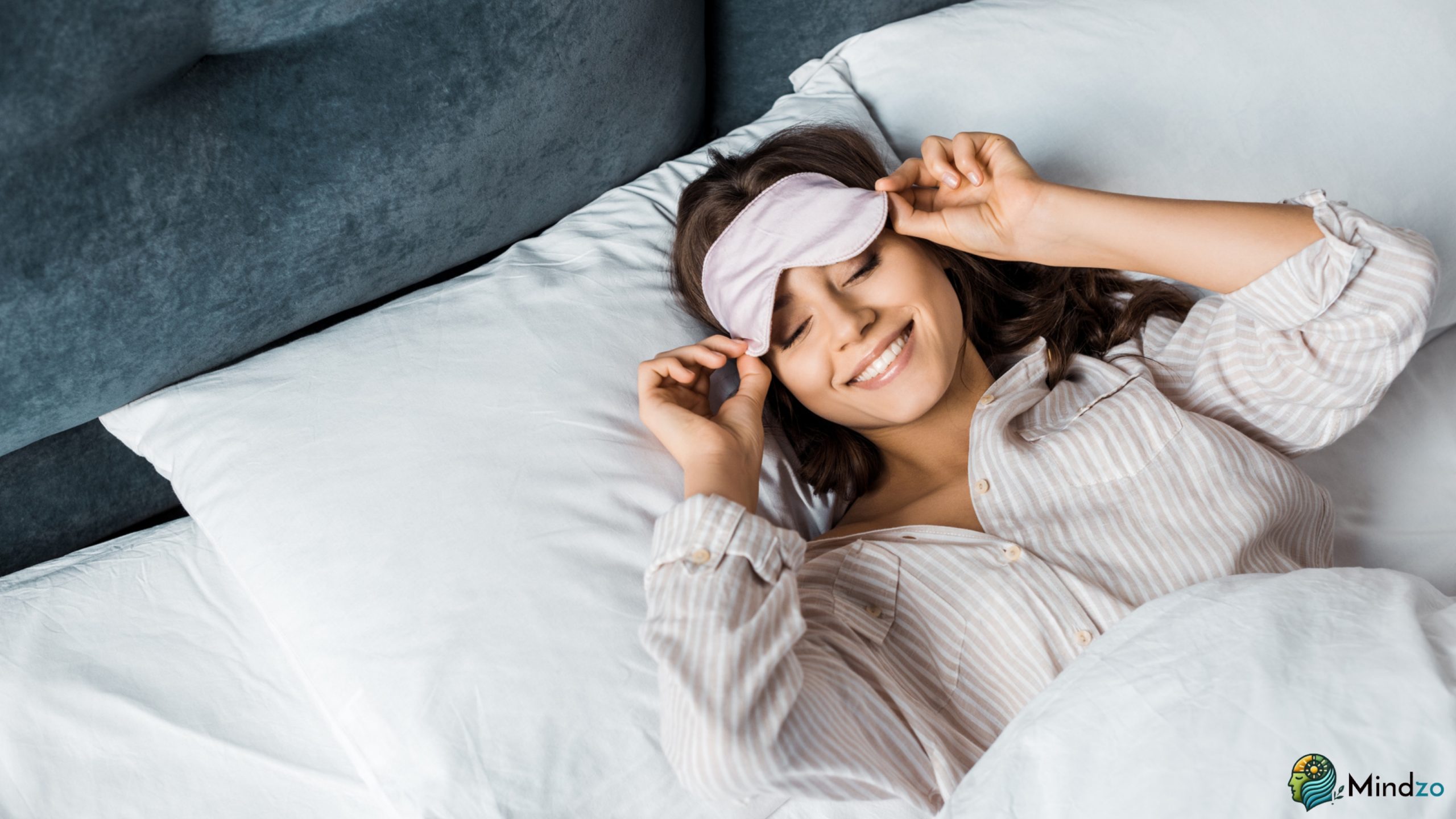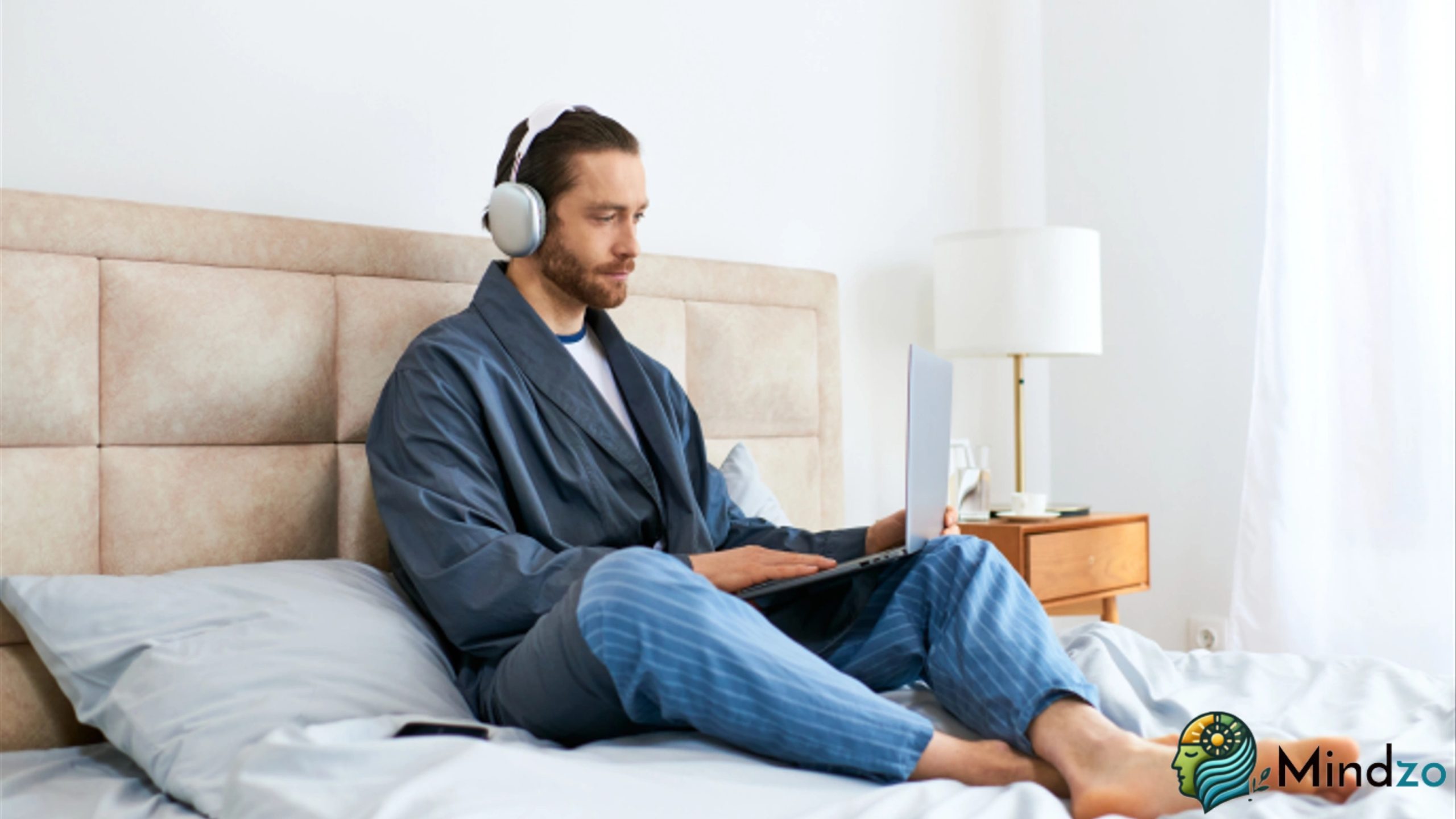Why Better Sleep Could Be the Key to Calmer Days

In our busy world full of notifications, tight schedules, and continual stimulation, it can seem impossible to find moments of peace. We often use meditation applications, stress-relief strategies, or adjustments to our lifestyles to deal with stress, but there’s one simple answer that is right in front of us: better sleep.
Most people don’t know how deep the connection is between restorative sleep and emotional regulation. This is why sleep hygiene is one of the best ways to have calmer, more serene days.
The Science of Sleep and Stress Management
Our brains do important things while we sleep that affect how we deal with stress and emotions the next day. During deep sleep, the brain puts memories together, deals with emotions, and gets rid of poisons that build up while we’re awake.
Not getting enough sleep messes up our body’s ability to deal with stress. It can raise cortisol levels, our main stress hormone, by up to 50% if you only lose one or two hours of sleep. This higher level of cortisol sets off a chain reaction that makes us more susceptible to everyday problems and less able to keep our emotions in check.
Studies published in sleep medicine publications regularly indicate that those who obtain sufficient, high-quality sleep have superior emotional regulation, higher decision-making skills, and increased resilience in stressful circumstances.
How Not Getting Enough Sleep Makes Daily Stress Worse
Our neurological system stays on high alert when we don’t get enough sleep. This constant stimulation of our fight-or-flight response makes normal circumstances appear more dangerous than they really are. Traffic jams drive you crazy, work deadlines make you feel like you can’t handle them, and small problems make you feel much too stressed.
Brains that don’t get enough sleep have trouble with:
Paying attention and staying focused
Ability to solve problems
Making and remembering memories
Processing emotions
Controlling your impulses
These cognitive problems make things harder and more annoying, which adds to the stress.
Sleep Optimization Tips for More Peaceful Days
The way your bedroom is set up is quite important for getting better sleep. Make your space a peaceful place to rest:
Controlling the temperature: For the best sleep, keep your bedroom between 65 and 68 degrees Fahrenheit (18 and 20 degrees Celsius). When the temperature drops, your body knows it’s time to sleep.
Managing Light: Buy blackout curtains or an eye mask to keep light from bothering you. Even a little bit of light can stop the body from making melatonin.
Improving Sound: To block out disturbances that can wake you up, use earplugs, a white noise machine, or gentle background sounds.
Make sure you have regular sleep patterns.
Regulating your circadian rhythm is important for both your sleep and your emotional health. Your body does best when things are predictable:
Every day, even on weekends, go to bed and wake up at the same hour.
Make a calming ritual before bed that lets you know it’s time to go to bed.
Don’t use screens for at least an hour before bed.
As part of your wind-down, try moderate stretching, reading, or meditating.
Better Sleep Through Food and Timing
Foods that help you sleep: Foods high in magnesium and tryptophan, such cherries, almonds, turkey, and chamomile tea, help sleep naturally.
Timing is important: Don’t eat big meals, drink coffee, or drink alcohol within three to four hours of going to bed. Alcohol may make you sleepy at first, but it messes up your sleep patterns and cuts down on deep sleep.
How better sleep affects everyday life
When you obtain enough quality sleep every night, you’ll be able to handle daily problems much better. When your brain is well-rested and able to use its higher-order cognitive skills, stress-reduction tactics work better.
People who don’t get enough sleep are more likely to misread neutral facial signals as negative and react with anger or defensiveness. Getting enough sleep enhances your ability to understand other people, have empathy for them, and talk to them, which makes your relationships better.
More productivity and focus
Good sleep is good for your mental health, and it can also help you at work. People who get enough sleep are more creative, make better decisions, and are better at handling many jobs at once without being overwhelmed.
Natural ways to help you sleep and relax
Meditation and mindfulness for sleep
Adding mindfulness exercises to your evening routine can make you sleep better and feel calmer the next day:
Exercises for deep breathing
Meditations for sleep with guidance
Writing in a gratitude journal
Making a sleep plan that works for you
Keep an eye on your sleep patterns
To get the most out of your sleep, you need to know what it needs. Think about using:
Wearable devices or apps that track sleep
Sleep journals to find trends
Tracking regular bedtimes and wake times
Don’t try to change your whole sleep regimen all at once. Slowly start using good sleep habits:
Set regular timings for going to bed and waking up.
Make your sleeping area as comfortable as possible
Add activities that help you relax before bed
Talk about when to eat and work out
Take care of tension and anxiety before bed
When to Get Help from a Professional
Most people may greatly improve their sleep by making modifications to their daily lives, but some conditions call for expert help:
Long-term insomnia that lasts more than a few weeks
Signs of sleep apnea include snoring, gasping, and being tired during the day.
Chronic anxiety or sadness impacting sleep
Sleep problems caused by medication
Sleep disturbances are medical issues that need to be diagnosed and treated correctly by doctors.
The Long-Term Advantages of Making Sleep a Priority
In our world, when people are always trying to achieve more, thinking of sleep as a luxury instead of a need is one of the worst things you can do. When you put sleep wellbeing first, you’re putting money into:
Better immune system function
Better mental health and emotional control
Better creativity and cognitive performance
Less chance of getting long-term illnesses
More happiness and satisfaction with life as a whole
Tonight is the start of your journey to calmer days.
You don’t need to spend a lot of money on therapies, learn sophisticated skills, or make big changes to your life to have calmer, more serene days. The first step is to see sleep as the basis of emotional health and make small, regular modifications to your nightly slumber.
If you follow the sleep improvement tips in this guide, you’re not simply buying better nights, you’re also setting the stage for calmer, more fulfilling days ahead. Don’t forget that getting enough sleep isn’t selfish, it’s necessary for being your best self in every area of life.
Pick one or two tactics that speak to you and start tonight. Your future self, who will be well-rested, will appreciate you for taking this important step toward better overall health and stress management.
-
 Beyond Words: The Emotional Medicine of a Simple HugOctober 27, 2025
Beyond Words: The Emotional Medicine of a Simple HugOctober 27, 2025 -
 Music’s Unique Therapeutic BenefitsOctober 23, 2025
Music’s Unique Therapeutic BenefitsOctober 23, 2025

Leave a Reply